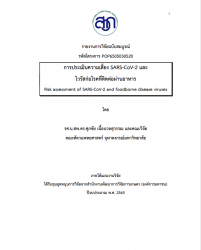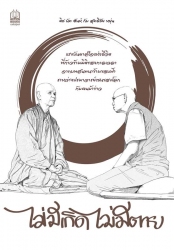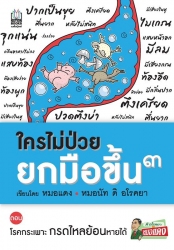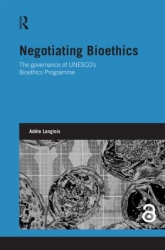
Author : Adèle Langlois
Publishing Date : Aug 15, 2013
The sequencing of the entire human genome has opened up unprecedented possibilities for healthcare, but also ethical and social dilemmas about how these can be achieved, particularly in developing countries. UNESCO’s Bioethics Programme was established to address such issues in 1993. Since then, it has adopted three declarations on human genetics and bioethics (1997, 2003 and 2005), set up numerous training programmes around the world and debated the need for an international convention on human reproductive cloning.
Negotiating Bioethics presents Langlois' research on the negotiation and implementation of the three declarations and the human cloning debate, based on fieldwork carried out in Kenya, South Africa, France and the UK, among policy-makers, geneticists, ethicists, civil society representatives and industry professionals. The book examines whether the UNESCO Bioethics Programme is an effective forum for (a) decision-making on bioethics issues and (b) ensuring ethical practice. Considering two different aspects of the UNESCO Bioethics Programme – deliberation and implementation – at international and national levels, Langlois explores:
how relations between developed and developing countries can be made more equal
who should be involved in global level decision-making and how this should proceed
how overlap between initiatives can be avoided
what can be done to improve the implementation of international norms by sovereign states
how far universal norms can be contextualized
what impact the efficacy of national level governance has at international level
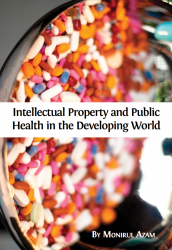
Author : Azam, Monirul
Publishing Date : Mar 20, 2023
"Across the world, developing countries are attempting to balance the international standards of intellectual property concerning pharmaceutical patents against the urgent need for accessible and affordable medicines. In this timely and necessary book, Monirul Azam examines the attempts of several developing countries to walk this fine line. He evaluates the experiences of Brazil, China, India, and South Africa for lessons to guide Bangladesh and developing nations everywhere. Azam's legal expertise, concern for public welfare, and compelling grasp of principal case studies make Intellectual Property and Public Health in the Developing World a definitive work. The developing world is striving to meet the requirements of the World Trade Organization's TRIPS Agreement on intellectual property. This book sets out with lucidity and insight the background of the TRIPS Agreement and its implications for pharmaceutical patents, the consequences for developing countries, and the efforts of certain representative nations to comply with international stipulations while still maintaining local industry and public health. Azam then brings the weight of this research to bear on the particular case of Bangladesh, offering a number of specific policy recommendations for the Bangladeshi government—and for governments the world over. Intellectual Property and Public Health in the Developing World is a must-read for public policy-makers, academics and students, non-governmental organizations, and readers everywhere who are interested in making sure that developing nations meet the health care needs of their people. "
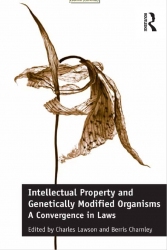
Author : Charles Lawson, Berris Charnley
Publishing Date : Mar 09, 2016
Taking a global viewpoint, this volume addresses issues arising from recent developments in the enduring and topical debates over Genetically Modified Organisms (GMOs) and their relationship to Intellectual Property (IP). The work examines changing responses to the growing acceptance and prevalence of GMOs. Drawing together perspectives from several of the leading international scholars in this area, the contributions seek to break away from analysis of safety and regulation and examine the diversity of ways the law and GMOs have become entangled. This collection presents the start of a much broader engagement with GMOs and law. As GMO technology becomes increasingly more complex and embedded in our lives, this volume will be a useful resource in leading further discussion and debate about GMOs in academia, in government and among those working on future polic
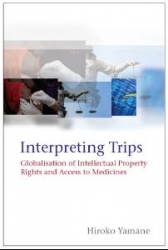
Author : Hiroko Yamane
Publishing Date : Sep 29, 2014
Protection of intellectual property rights (IPRs) has become a global issue. The Trade-Related Aspects of Intellectual Property (TRIPS) Agreement outlines the minimum standards for IPR protection for WTO members and offers a global regime for IPR protection. However, the benefits of TRIPS are more questionable in poorer countries where national infrastructure for research and development (R & D) and social protection are inadequate, whereas the cost of innovation is high. Today, after more than a decade of intense debate over global IPR protection, the problems remain acute, although there is also evidence of progress and cooperation.
This book examines various views of the role of IPRs as incentives for innovation against the backdrop of development and the transfer of technology between globalised, knowledge-based, high technology economies. The book retraces the origins, content and interpretations of the TRIPS Agreement, including its interpretations by WTO dispute settlement organs. It also analyses sources of controversy over IPRs, examining pharmaceutical industry strategies of emerging countries with different IPR policies.
The continuing international debate over IPRs is examined in depth, as are TRIPS rules and the controversy about implementing the ‘flexibilities’ of the Agreement in the light of national policy objectives. The author concludes that for governments in developing countries, as well as for their business and scientific communities, a great deal depends on domestic policy objectives and their implementation. IPR protection should be supporting domestic policies for innovation and investment. This, in turn requires a re-casting of the debate about TRIPS, to place cooperation in global and efficient R & D at the heart of concerns over IPR protection.
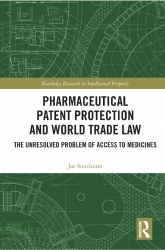
Author : Jae Sundaram
Publishing Date : May 08, 2018
Patents, including pharmaceutical patents, enjoy extended protection for twenty years under the TRIPs Agreement. The Agreement has resulted in creating a two-tier system of the World Trade Organisation Member States, and its implementation has seen the price of pharmaceutical products skyrocket, putting essential medicines beyond the reach of the common man. The hardest hit populations come from the developing and least developed countries, which have either a weak healthcare system or no healthcare at all, where access to essential and affordable medicines is extremely difficult to achieve.
Pharmaceutical Patent Protection and World Trade Law studies the problems faced by these countries in obtaining access to affordable medicines for their citizens in light of the TRIPS Agreement. It explores the opportunities that are still open for some developing countries to utilise the flexibilities available under the TRIPS Agreement in order to mitigate the damage caused by it. The book also examines the interrelationship between the world governing bodies, and the right to health contained in some of the developing country’s national constitutions.
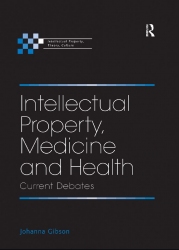
Author : Johanna Gibson
Publishing Date : Nov 23, 2017
Intellectual Property, Medicine and Health examines critical issues and debates, including access to knowledge and medicinal products, human rights and development, innovations in life technologies and the possibility for ethical frameworks for intellectual property law and its application in public health.
The second edition accounts for recent and in some areas extensive developments in this dynamic and fast-moving field. This edition brings together new and updated examples and analysis in competition and regulation, gene-related inventions and biotechnology, as well as significant cases, including Novartis v Union of India.
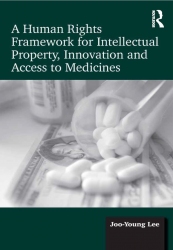
Author : Joo-Young Lee
Publishing Date : Mar 09, 2016
This book examines the relationship between intellectual property in pharmaceuticals and access to medicines from a human rights perspective, with a view to contributing to the development of a human rights framework that can guide States in enacting and implementing intellectual property law and policy. The study primarily explores whether conflicts between patents and human rights in the context of access to medicines are inevitable, or whether patents can be made to serve human rights. What could be a normative framework that human rights might provide for patents and innovation? Joo-Young Lee argues that it is necessary to have a deepened understanding of each of the two sets of norms that govern this issue, that is, patent law and international human rights law. The chapters investigate the relevant dimensions of patent law, and analyse particular human rights bearing upon the issue of intellectual property and access to medicines. This study will be of great interest to academic specialists, practitioners or professionals in the fields of human rights, trade, and intellectual property, as well as policy makers, activists, and health professionals across the world working in intellectual property and human rights.
123NextLast

